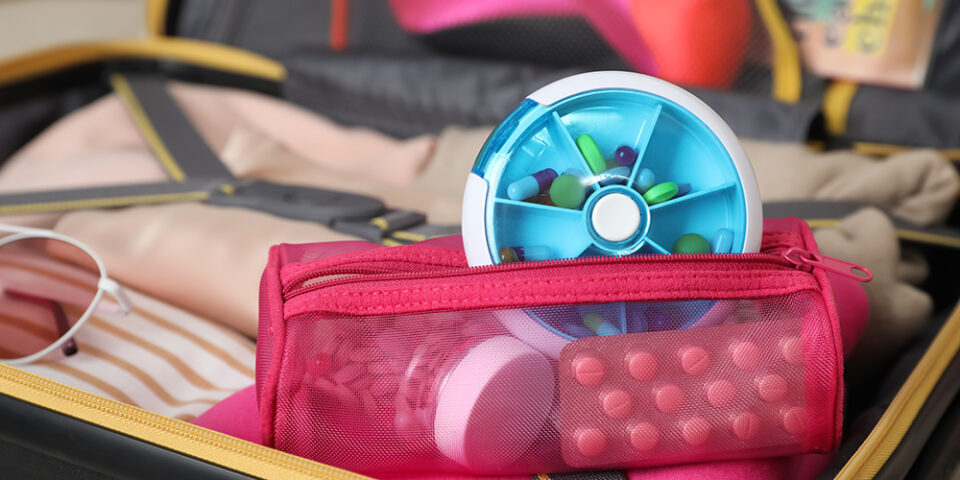4 tips for traveling with medication
Traveling with medication can be a little daunting, especially if you’re traveling internationally. How much should you bring? Does it need to be stored a certain way? What can you do if your medicine isn’t allowed at your destination?
Pharmacist Shandi Pack offered these tips for traveling with medication.
- Know before you go. “If you’re planning to travel internationally, check with your airline,” Pack said. “More than likely, the airline will have specific requirements about how to travel with medications, such as having medications labeled or requiring a note from your doctor about what you’re taking. If you’re using a medication that requires an injection, there could be some concern about those going through security, so make sure you have all the documentation to show what medication you’re using and why.”
The Centers for Disease Control and Prevention (CDC) also recommend checking with the foreign embassy of the country you are visiting or traveling through to make sure your medication is allowed. If it’s not allowed, talk to your doctor about alternatives.
- Carry your medication with you. Be sure to you put your medication in your carry-on bag instead of your checked luggage to avoid being without it if your flight gets delayed or your luggage gets lost. Putting it in a clear, resealable bag makes the screening process easier.
- Store your medication appropriately. If your medicines need to be refrigerated, make sure you have a cooler with ice packs to keep them at their correct temperature.
- Consider bringing your meds in the original bottle or in a pill organizer. If you’re traveling internationally, the U.S. Department of State recommends keeping your medications in their original container with the label intact. If you’re staying stateside, you can consider bringing only what you need in a pill organizer.
“That way, if something happens and your medicine gets lost, you still have some medication that you can get to at home if needed,” Pack said. “Also, some people like to take their pill organizer because they can set that out a week or two at a time and it’s easier for them to keep track of whether they took their medication.”
However, if you choose to travel with medications that are not in their prescribed bottle, Pack recommended bringing a printed list of all your medications, their doses and how you take them.
“This would be super helpful in case you get in an accident and need care, or if there’s a question about what’s in your pill organizer,” she said. “It just helps you be more prepared and able to avoid any concern over what might be in your pill organizer.”
If you have any questions about how to travel with your specific medication, talk to your doctor ahead of time.
Find the care you need, close to home
Our primary care physicians provide well visits and everyday care when you need it with compassion and expertise.
Find Primary Care Near You

